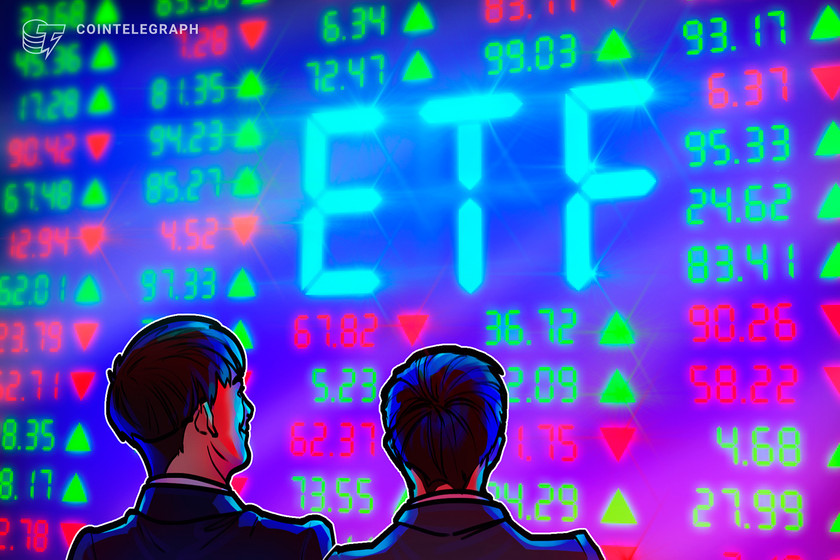Institutions ‘extremely interested’ in crypto ETFs, but buying has cooled: Survey


Almost half of the fund managers surveyed plan to add crypto ETFs to their portfolio in 2023, but only a quarter will be increasing digital asset exposure.
Institutional interest in cryptocurrencies hasn’t budged despite the market being down 60% from its all-time highs, as a majority of asset managers stated they’re “extremely interested” in crypto-themed Exchange Traded Funds (ETFs).
On April 3, financial services firm Brown Brothers Harriman (BBH) released its 2023 Global ETF Investor Survey, which polled 325 institutional investors, financial advisers and fund managers from the United States, United Kingdom, Europe and China.
It found nearly three-quarters of institutional investors claimed they’re “extremely” or “very” interested in crypto ETFs, but the effects of crypto winter appear to have chilled their appetite. Only a quarter said they’re expecting to increase allocation to crypto ETFs over the next 12 months, a 6% fall from 2022.
The findings of our 2023 Global ETF Investor survey are out. Explore the report to learn about the shifts ETF investors are making in the face of macro and market changes, and what the last decade in ETFs can tell us about the next ten years. https://t.co/KeTeAUfz8G#ETFs pic.twitter.com/ueDlwvynNQ
— Brown Brothers Harriman (@bbh) April 3, 2023
While crypto-themed ETFs fell down the priority list for some, nearly half still plan to add crypto ETFs to their portfolios this year to diversify investments.


BBH explained the rise in interest for crypto ETFs is partly due to fund managers learning to stomach the inevitable volatilities in the crypto market:
“As investors adapt to volatility, they are diversifying their portfolios and adding more innovative products. Even with a tumultuous year in crypto, interest hasn’t cooled entirely.”
BBH believes a clearer crypto regulatory framework will further increase the demand for related ETF exposure as it will provide more “comfort” when doing business with the crypto sector:
“Initiatives such as the draft regulation from the EU’s Markets in Crypto Assets proposal is expected to significantly ‘derisk’ investments in crypto assets for asset managers and provide an ‘additional layer of comfort’ for fund managers to engage with crypto exchange.”
More than 40% of the respondents claimed to manage assets worth more than $1 billion and over half said to have more than a quarter of their portfolio invested in ETFs.
Related: Samsung investment arm to launch Bitcoin Futures ETF amid rising crypto interest
Among the largest crypto ETFs are ProShares Bitcoin Strategy (BITO), available on the New York Stock Exchange (NYSE), and the Bitwise 10 Crypto Index Fund (BITW). BITO was reportedly the first bitcoin-linked ETF launched in the United States, while BITW tracks the top 10 largest cryptocurrencies by market cap.
Grayscale’s Bitcoin Trust (GBTC), while not an ETF, is one of the largest digital asset investment products by market cap traded on a stock exchange, with a current value of $11 billion according to Google Finance.
Not all crypto ETFs have fared well, as the effects of the crypto market winter saw two Australian crypto ETFs — BetaShares Crypto Innovators ETF (CRYP) and Cosmos Global Digital Miners Access ETF (DIGA) — take the title as the worst-performing ETFs in the country.
This resulted in DIGA, along with Cosmos Purpose Ethereum Access ETF (CPET) and Cosmos Purpose Bitcoin Access ETF (CBTC), being delisted at the end of 2022.
Magazine: Crypto winter can take a toll on hodlers’ mental health







